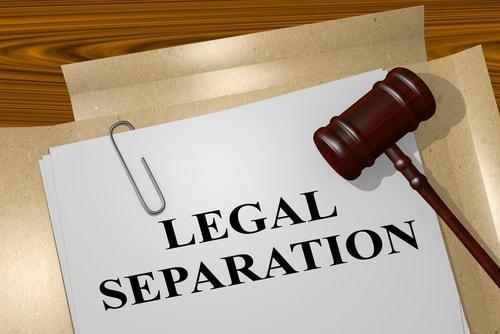Defining Legal Separation and Divorce
Legal separation and divorce are often confused, but they differ in key ways. Legal separation involves couples living apart and formalizing their financial arrangements, responsibilities, and parenting plans while remaining married in the eyes of the law. Divorce marks the formal end of the marriage contract, allowing both individuals to remarry and legally stand as singles. Although the emotional ramifications are complex, the legal realities are quite different.
For anyone standing at such a pivotal juncture, working with an experienced family attorney Tampa can provide much-needed clarity and support. Legal separation is often chosen by people who need structure and boundaries without taking the final step that divorce represents. Divorce may be pursued when both parties agree that a complete dissolution is necessary for their lifestyle, well-being, and plans. Both routes require attention to detail, cooperation, and a clear understanding of the long-term consequences for all family members.
Common Reasons for Choosing Legal Separation
Not every couple experiencing difficulty is ready to end their marriage permanently. In these scenarios, legal separation creates a formal pause that protects both parties. Personal beliefs often drive this choice. Individuals with strong religious convictions may prefer separation over divorce, as it offers independence without violating personal values. Some families choose it for children, seeking to minimize disruption while exploring the possibility of reconciliation or better co-parenting dynamics.
- Preserving marriage for religious or cultural reasons, even when a romantic relationship has ended
- Maintaining employer-based health insurance for a dependent spouse
- Retaining military or government benefits that may not extend to ex-spouses
- Granting time and space to work through emotional or financial issues before making a conclusive decision
Financial and Parental Implications
Both legal separation and divorce trigger a cascade of financial and parental decisions. The process requires honest disclosure of assets, debts, and income so that legal agreements can be made, mirroring steps taken during divorce. The single most important factor for children during major life changes is the predictability and stability of the home environment.
Financial Considerations
- Property Division: Whether separated or divorced, marital property is divided according to state laws. In equitable distribution states, the court divides assets fairly, though not always equally. In community property states, assets gained during marriage are typically split 50/50.
- Debt Allocation: Responsibility for joint debts or joint liability, including mortgages and credit cards, is usually divided as part of the separation agreement.
- Spousal Support: Courts may mandate spousal support to balance significant income differences or provide for a spouse disadvantaged by the split.
- Tax Implications: A legal separation can impact tax filing status, deductions, and credits. Each couple’s financial landscape will shift, sometimes in unexpected ways, so speaking to a tax professional early is wise.
Parental Responsibilities
- Custody and Visitation: Court-approved parenting plans outline how time and decision-making responsibilities are shared, which is critical in helping children adjust.
- Child Support: Similar to divorce, child support is calculated by the court based on income, healthcare, and childcare costs, ensuring children’s needs remain at the forefront.
- Co-Parenting Communication: Healthy communication is strongly encouraged to facilitate transitions and maintain emotional stability for all involved.
Healthcare, Benefits, and Insurance Issues
Many couples face challenges in choosing health insurance and other benefits after divorce. Employer-provided health insurance policies often lose coverage for non-spouses. Legal separation may still allow the separated partner to be eligible for coverage, especially if one spouse has ongoing medical needs or struggles with independent insurance. Benefit providers have unique rules, and misunderstanding these can lead to significant financial consequences. Therefore, reviewing all benefit documents and requirements is crucial before taking a legal step.











